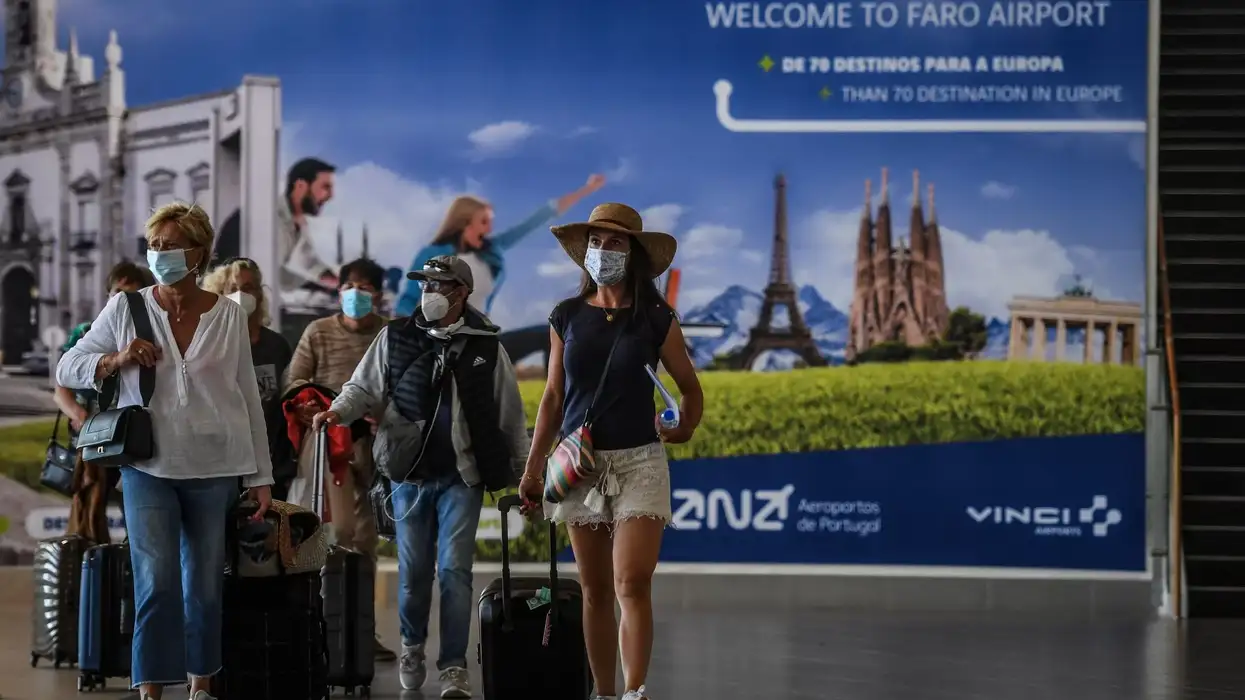LARGE numbers of Briton holidaymakers landed in Portugal on Monday (17) as the two countries eased their Covid-19 pandemic travel restrictions.
About 30 flights carrying almost 5,500 travelers from the UK were expected to have landed in Portugal on Monday (17) with most heading to the southern Algarve region, which is famous for its beaches and golf courses.
The tourists were met at Faro airport by workers handing out Covid-19 welcome kits containing masks and disinfectants.
"It feels amazing. Happy, everyone's happy. We were on the first flight out of the UK," said Kim, 27, who arrived from Manchester at Faro airport.
"It's fantastic. The feeling is unbelievable. We got the sun, the people, the beaches, the bars. Can't wait," said British tourist Matthew Bolden at the arrivals gate at Lisbon airport.

Earlier this year, Portugal had imposed a strict two-month lockdown to control a new wave of coronavirus infections. The country lifted restrictions on visitors from Britain and most European Union countries from Monday (17) when it announced that people from European countries with Covid-19 incidence rates below 500 cases per 100,000 people over 14 days can now make nonessential trips to Portugal, as long as they show a negative test on arrival.
Portugal has reopened restaurants and shops but some capacity limitations remain in place. Restaurants must close at 10:30 p.m, masks must be worn while walking on the beach and nightclubs and indoor bars selling only alcohol to remain closed.
Britons are usually the biggest contingent of tourists in Portugal, a country whose economy relies heavily on foreign visitors. The arrivals have brightened the outlook for Portugal’s crucial tourism sector where hotels and beaches were empty for the most part of the last year.
Thousands of Briton football fans are also expected to arrive here later this month for the May 29 Champions League final between Manchester City and Chelsea in Porto.




